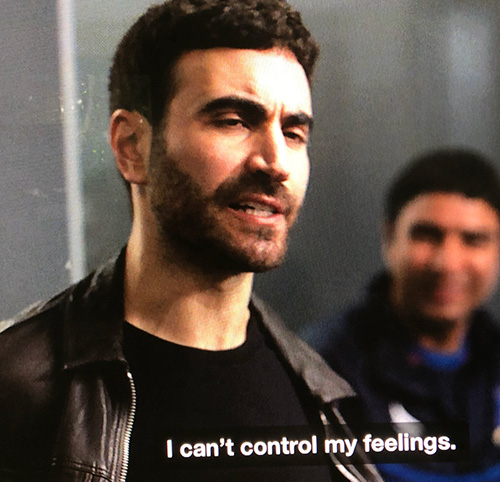Last week, we covered the topic of goal complex (or the complexity/nuance of goals) and explored relevant research that investigated how individuals' reasons for doing things influence the types of actual goals they develop and act on. Specifically, we were introduced to a framework in which aspects of self-determination theory (intrinsic or autonomous vs. extrinsic or controlled) were operationalized as the reasons or drive behind one's goals. Further, these motives behind one's goals then influenced what an individual is actually trying to accomplish, operationalized as achievement goals (mastery vs. performance; approach vs. avoidance). When individuals have more autonomous reasons for acting (interest, enjoyment, valuing others' improvement), they often will develop approach goals (working on skills, completing tasks) and experience positive results. On the other hand, when individuals have more controlled reasons for acting (external rewards, pressure from others), they will often develop avoidance goals and experience negative results if they engage in the activity at all. This framework helps to explain why performance approach goals occur and why these types of goals may be adaptive rather than maladaptive as previously theorized.
In thinking about goal complexes related to the motives, goals, and behaviors of Ted Lasso and other prominent characters in the series, one can create a decent illustration of how the relationship between motives, goals, and actions/outcomes can play out and, subsequently, be applied. Starting from the beginning of this goal complex model, let's consider the quality of Ted's motives or reasons behind his being a coach. As described in past blog posts, Ted does not appear to be motivated by extrinsic rewards, such as winning, money, or fame. Instead, based on Ted's words and actions, his motives seem to be quite intrinsic, as he truly values team camaraderie, connection, and self-improvement (extended to other domains besides sport performance). In line with research exploring goal complexes, which we reviewed in class last week, Ted's intrinsic motives tend to lead to his tendency to set approach goals rather than subscribe to avoidance goals or tendencies (e.g., . Even when Ted seems to have more of a performance goal than a mastery goal (being more cohesive as a team and organization than any other team in the league), Ted's intrinsic motives behind this performance goal induce an approach orientation rather than an avoidance orientation. For example, rather than ignoring their last place ranking or turning Jamie Tartt away for being a difficult team member, Ted approaches these tough situations by taking them head on (clearing heads with an underground sewer tour; bring Jamie back and allowing him to find his leadership role) due to his intrinsic valuing of developing cohesivity and improvement of his athletes. In turn, the team finishes near the top of the rankings and Jamie Tartt develops into both a star and a leader.
In examining the goal complexes of Roy Kent, one initially could understandably perceive that his goal complex process is conversely valanced as compared to Ted Lasso's. Roy Kent's motives behind participating in soccer and, eventually, soccer coaching appear to be more controlled than autonomous. Roy seems to be motivated by money, continuing to live out his fame, and wanting to avoid the negative feelings that could come from a life outside of soccer. In turn, Roy's goals, at least initially, seem to be quite avoidant. Roy avoids dealing with his retirement by ignoring the obvious physical and performance signs that his play is deteriorating and shouting others down who eventually point this out (including Ted). Further, Roy also sets out to avoid any form of vulnerability or intimacy with others. However, in line with the goal complex framework we learned about, once Roy begins to intrinsically value things like coaching (desiring to assistant coach for Ted), emotional intimacy (relationship with Keeley), and vulnerability with friends (joining the Diamond Dogs), he begins to not only change his goals from avoidance to approach, but also becomes a lot more approachable as a whole!





No comments:
Post a Comment